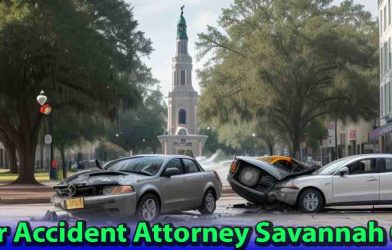Introduction
Brain injury law group Imagine waking up one day to find that simple tasks—like remembering a friend’s name or tying your shoes—have become insurmountable challenges.
This is the reality for many individuals who suffer traumatic brain injuries (TBIs). Such injuries can drastically alter the course of a person’s life, affecting not only their health but also their financial stability and overall well-being.
Navigating the complexities of medical treatments, insurance claims, and legal rights can be overwhelming for victims and their families.
This is where brain injury law groups step in, offering specialized legal assistance to ensure that victims receive the justice and compensation they deserve.
What Are Brain Injury Law Groups?
Brain injury law groups are specialized legal practices dedicated to representing individuals who have sustained brain injuries due to accidents, medical malpractice, sports injuries, or other incidents. These firms possess in-depth knowledge of the medical and legal intricacies associated with brain injuries, enabling them to advocate effectively for their clients.
Expertise and Experience
Attorneys in these groups often have extensive experience in personal injury law, with a focus on cases involving neurological damage. For instance, Attorney Gordon S. Johnson Jr., founder of the Brain Injury Law Group, has been a leading advocate for brain injury survivors. His firm emphasizes not just legal representation but also understanding the medical aspects of recovery, highlighting that “when Attorney Johnson talks about ‘recovery,’ he isn’t talking about what a survivor recovers in litigation, but about getting better from a brain injury.”
Comprehensive Legal Support
These law groups offer a range of services, including:
- Case Evaluation: Assessing the circumstances surrounding the injury to determine legal viability.
- Medical Collaboration: Working closely with medical professionals to understand the extent of the injury and its implications.
- Litigation: Representing clients in court to pursue compensation for medical expenses, lost wages, and pain and suffering.
- Settlement Negotiation: Engaging in discussions with insurance companies to secure fair settlements.
The Importance of Specialized Legal Representation
Brain injuries are often referred to as “invisible injuries” because their effects may not be immediately apparent. Symptoms like memory loss, cognitive decline, and personality changes can manifest over time, making it challenging to establish a direct link between the injury and the incident. Specialized legal representation is crucial for several reasons:
Understanding Medical Nuances
Attorneys with expertise in brain injuries comprehend the medical terminology and can effectively interpret medical records. This understanding is vital in building a strong case that accurately reflects the victim’s condition.
Navigating Legal Complexities
The legal landscape surrounding personal injury claims is intricate. Specialized attorneys are familiar with the statutes of limitations, liability issues, and the evidentiary requirements specific to brain injury cases.
Maximizing Compensation
Experienced brain injury lawyers know how to calculate the full extent of damages, considering both immediate costs and long-term expenses related to rehabilitation, therapy, and lifestyle adjustments.
Notable Brain Injury Law Groups
Several law firms have distinguished themselves in the field of brain injury litigation:
Brain Injury Law Center
Based in Virginia, the Brain Injury Law Center is recognized as a premier firm dedicated to representing brain injury victims and their families. The firm emphasizes the profound impact of TBIs, noting that “brain injuries are devastating, life-changing, and often not obvious to the casual observer.”
Anthony Collins Solicitors
Established in 1973, Anthony Collins Solicitors has grown into a substantial entity with over 300 staff and 150 lawyers. The firm emphasizes its social mission to “improve lives, communities, and society,” and has achieved B Corporation status for meeting high standards of social and environmental performance. Among its notable cases, the firm secured £21.35 million in compensation for a young person with a brain injury from a motorcycle accident.
The Role of Brain Injury Law Groups in High-Profile Cases
Brain injury law groups often play pivotal roles in high-profile cases, bringing attention to the long-term consequences of TBIs and advocating for systemic changes.
Sports-Related Brain Injuries
In recent years, there has been increased scrutiny on sports-related brain injuries, particularly in contact sports like rugby and American football. Legal actions have been initiated by former athletes against sports governing bodies for failing to protect players from the risks of concussions and repetitive head trauma.
For example, former England rugby player Phil Greening joined a group claim against World Rugby, the Rugby Football Union (RFU), and the Welsh Rugby Union, alleging that they suffered brain injuries due to inadequate protection during their careers. This legal action has grown to include 390 claimants, highlighting the widespread concern over brain injuries in sports.
Advocacy and Awareness
Beyond litigation, brain injury law groups often engage in advocacy to raise awareness about the risks and consequences of TBIs. They collaborate with medical professionals, support groups, and policymakers to promote better safety standards and support systems for individuals affected by brain injuries.
Challenges Faced by Brain Injury Law Groups
While these specialized law groups provide invaluable services, they also face unique challenges:
Establishing Causation
Proving that a brain injury directly resulted from a specific incident can be complex, especially when symptoms are delayed or when the victim had pre-existing conditions.
Dealing with Insurance Companies
Insurance companies may attempt to minimize payouts by disputing the severity of the injury or the necessity of certain medical treatments. Skilled negotiation and, when necessary, litigation are essential to secure fair compensation.
Emotional Toll
Representing brain injury victims requires empathy and resilience, as attorneys often work closely with clients and families during some of their most challenging times.
Frequently Asked Questions (FAQs)
Q: What should I do if I suspect a loved one has sustained a brain injury?
A: Seek immediate medical attention. Even if symptoms seem mild, a professional evaluation is crucial. Once the medical situation is stable, consult a specialized brain injury attorney to understand your legal options.
Q: How long do I have to file a lawsuit after a brain injury?
A: The statute of limitations varies by jurisdiction and the specifics of the case. It’s essential to consult with an attorney promptly to ensure you don’t miss critical deadlines.
Q: Can I afford a specialized brain injury attorney?
A: Many brain injury law groups work on a contingency fee basis, meaning they only get paid if you win your case. Discuss fee structures during your initial consultation.
Q: What compensation can I expect from a brain injury lawsuit?
A: Compensation may cover medical expenses, rehabilitation costs, lost wages, loss of earning capacity, pain and suffering, and other related damages. The exact amount depends on the specifics of your case.
Q: How long does it take to resolve a brain injury case?
A: The timeline varies based on the case’s complexity, the severity of the injury, and whether it goes to trial or settles out of court. An attorney can provide a more accurate estimate after evaluating your situation.
Conclusion
Brain injury law groups serve as crucial advocates for individuals navigating the aftermath of traumatic brain injuries. Their specialized knowledge and dedication ensure that victims receive the legal support necessary to secure compensation and access appropriate medical care. If you or a loved one has suffered a brain injury, consulting with a specialized law group can be a vital step toward













